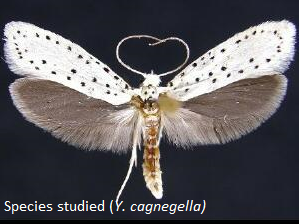Exam time is quickly approaching (for us too!). We know you may have heard it before, but trust us, believing and following it through, is another thing. Healthy eating is not only great for your body but also your mind.
City moths have ‘evolved’ to be less attracted to light
We all know that moths are attracted to light because they think it’s the moon right? But what happens when you have a city and each of those lights are potentially death traps (bug zappers, hot incandescent lights etc.)? What will happen to the moths?



